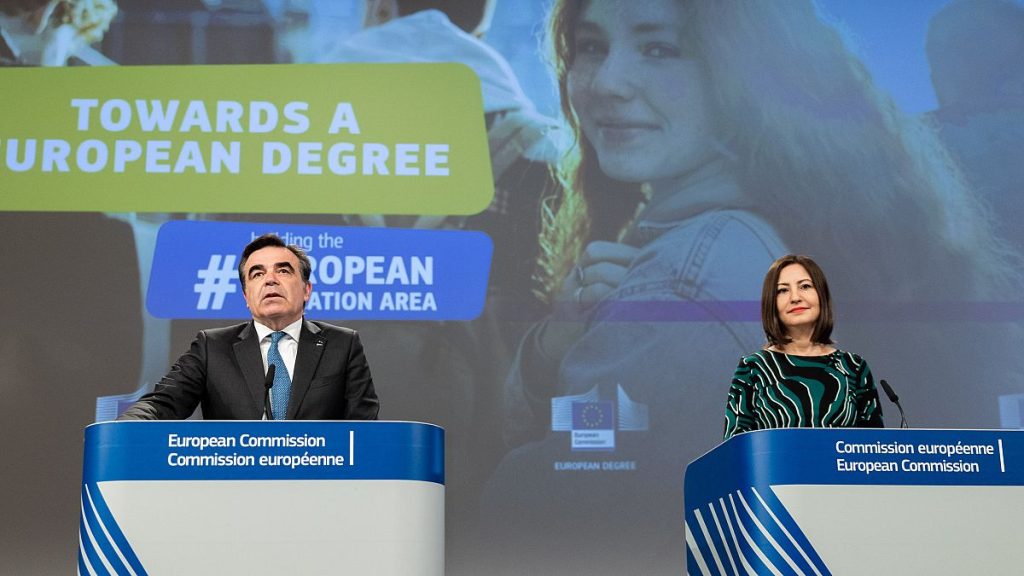The European Commission has unveiled plans to introduce a pan-European degree that would be awarded by a consortium of universities from EU countries. This degree would be recognized across the bloc and would be available at Bachelor, Master, and Doctoral levels. The goal of this initiative is to make the benefits of European integration more tangible for citizens. The scheme will be open to both private and public institutions in EU member states, with the possibility of universities in Erasmus+ partner countries also participating. The European Degree is seen as a way to boost Europe’s competitiveness by securing its place in the global race for talent.
Despite the enthusiasm surrounding the European Degree proposal, there have been questions about its necessity and practical implementation. Currently, there is no automatic EU-wide recognition of academic diplomas, leading to complex and costly procedures for students seeking recognition in another country. The scheme is not intended to replace the recognition of diplomas from single institutions but to offer an optional track for a European degree. To earn a European Degree, students would need to study in enrolled universities in at least two different member states, without any additional budget set aside to support them. This lack of funding has raised concerns about potential exclusivity and perpetuation of elitism.
The European Commission believes that the introduction of the European Degree will complement the existing Erasmus+ program, which enables students to study or work in other European countries. While no new funding is proposed for the European Degree scheme, universities are encouraged to participate voluntarily and would make savings by pooling resources. The two main steps of the scheme involve a European label to signify that a joint degree program meets European Degree requirements and the issuance of a fully-fledged European Degree by multiple universities from different member states, requiring changes to national legislation. The European University Association welcomed the Commission’s plans but emphasized the importance of implementing tools and instruments related to joint programs that already exist.
The launch of the European Degree proposal represents the first step towards developing a comprehensive plan, with further work expected to intensify in the second half of the year. The responsibility for advancing the initiative will ultimately fall to the Hungarian presidency of the Council of the EU. However, more than 30 Hungarian institutes are currently suspended from the Erasmus+ program due to concerns about their autonomy from the government, leading to strained relations between Brussels and Budapest. The success of the European Degree initiative will depend on effective implementation and coordination across Europe, with universities playing a key role in shaping the future of higher education in the EU.


